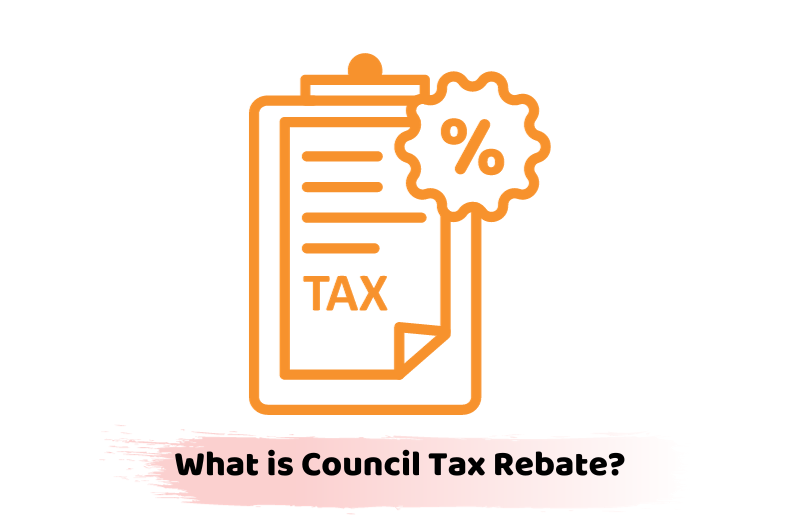Council tax rebate is a form of financial assistance provided to eligible individuals or households in the UK to help them with their council tax payments. The idea behind it is to offer support to those who may find it challenging to cover the costs of their council tax bills. The rebate is usually given by the local council, and the specific eligibility criteria and rebate amounts can vary depending on where you live.
It’s a means-tested benefit, taking into account factors like income, savings, and household size. The aim is to assist individuals and families who may be on a lower income or receiving certain benefits. If this sounds like something you might benefit from, you can contact your local council or check out their website for more information on how to apply for the council tax rebate.
Get in touch with one of our professionals to learn more about the council tax rebate. We will love to hear out your queries and provide instant solutions.
What is the Council Tax Rebate?
A council tax is a local tax that is levied by local authorities to help fund essential services in your area, like rubbish collection, street lighting, and public parks. A council tax rebate, also known as council tax support or council tax reduction, is a scheme designed to help individuals or households with low incomes or certain circumstances reduce the amount of council tax they have to pay.
The eligibility criteria and the amount of rebate you receive can vary depending on your local authority and your circumstances. You should also be checking if you are eligible for a council tax rebate to help ease the financial burden.
What are the Criteria for Eligibility for a Council Tax Rebate?
To be eligible for a council tax rebate in the UK, certain criteria need to be met. These criteria can vary depending on your local authority, as different areas may have slightly different rules. Other factors that could impact eligibility include living alone, having a disability, or being a full-time student.
How Much will I Get in the Form of a Council Tax Rebate?
The amount you can receive as a council tax rebate in the UK varies depending on various factors such as your income, savings, household size, and the specific rules set by your local authority. The calculation is usually based on a means-tested approach, meaning that they assess your financial circumstances to determine the level of support you may be entitled to.
The exact amount can differ from one individual to another, and it’s best to contact your local council or visit their website to get accurate and personalised information. They will be able to provide you with details about the specific rebate amounts based on your circumstances and guide you through the application process.
What is the Way to Get the Council Tax Rebate?
To apply the forms will require information about your income, savings, household size, and any applicable benefits or circumstances that might affect your eligibility. Once you’ve completed the application, submit it to your local council by mail or online, depending on their preferred method.
The council will then assess your application and determine the amount of rebate you are eligible to receive based on your circumstances. Keep in mind that the process and requirements may vary slightly depending on your local authority.
When Did the Council Tax Rebate Start?
The council tax rebate, also known as council tax support or council tax reduction, is a form of financial assistance provided to eligible individuals or households in the UK. It is designed to help those who may struggle to pay their council tax bill. The rebate is usually provided by the local council and the eligibility criteria and rebate amounts can vary depending on the area.
The rebate is means-tested, taking into account factors such as income, savings, and household size. It aims to provide support to individuals and families who may be on a low income or receiving certain benefits. To apply for a council tax rebate, it is advisable to contact your local council or visit their website to obtain the necessary information and application forms.
Is there any other Support Available to Help with the Scenario of Rising Costs?
There are various forms of support available to help individuals and families cope with the rising cost of living. One option is to explore different government benefits and allowances that you may be eligible for, such as housing benefits, income support, or Universal Credit. These programs aim to provide financial assistance to those who are facing financial challenges.
Additionally, some local authorities and charitable organisations offer specific schemes or grants that can help with the cost of living, such as energy bill discounts or food bank services. Reaching out and asking for help is a positive step towards managing your finances and easing the burden of rising costs.
The Bottom Line
In conclusion, the council tax rebate is a valuable form of support provided by local councils in the UK to help individuals and households who may struggle to pay their council tax bills. The rebate is means-tested, considering factors such as income, savings, and household size. By applying for a council tax rebate, individuals can potentially receive financial assistance that eases the burden of their council tax responsibilities.
Talk to your local council or visit their website for detailed information on eligibility criteria and application processes. Remember, taking advantage of available support can make a significant difference in managing your finances and ensuring that you can meet your council tax obligations.
Call or request a callback to speak to one of our professionals to discuss your queries about the council tax rebate. We are available from 9:00 am – 05:30 pm Monday to Friday.
Disclaimer: The information about council tax rebate is provided in this article including text and graphics. It does not intend to disregard any of the professional advice.





















































